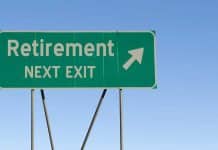
(FinancialHealth.net)- Looking ahead to retirement, being debt-free, and having enough money saved up are priorities for many. However, accomplishing that combined goal isn’t always clear-cut. One big question working adults face is determining if it is better to focus on paying off the mortgage or contributing as much as possible to a 401k or other savings instrument.
Doing Both Is Key to a Successful Retirement
The answer is honestly that it’s important to focus on both. Here’s how to prioritize saving for retirement while paying off mortgage debt at the exact same time.
Set a Limit on Retirement Savings
No matter how modestly a retiree lives, they’ll need to make sure their savings and investment accounts have enough to cover basic needs. This means that, as exciting as being debt-free might sound, it is important to establish a bare minimum for saving for the future.
What is a large enough contribution when you’re paying off mortgage debt at the same time? Financial expert Dave Ramsey suggests putting a maximum of 15% of your income into savings until you’re entirely free of debt.
Getting Aggressive About Mortgage Debt
Being free of a house payment after retirement can seriously simplify living within your means. For this reason, it’s a great idea to devise a plan for aggressively paying off a mortgage before reaching retirement age.
Some of the most effective strategies for early payoff include making an extra payment once a quarter or switching to bi-weekly payments to squeeze in an extra payment each year. Many mortgage companies will also allow borrowers to pay a little extra toward the principal each month. Anything you can afford above and beyond your regular payment not only reduces your principal but also the amount of interest paid over the life of the loan.
Reaching Your Goals, One Change at a Time
For those living paycheck-to-paycheck, paying off debt or saving for retirement might feel nearly impossible. The truth is that some of the most effective money-saving strategies are small and sustainable changes.
Try committing to buying only second-hand for a year. Find a side-gig dedicated entirely to making extra mortgage payments. Commit to a spending freeze, which means paying for necessities like bills, groceries, gas, and nothing else for an extended period of time.
Making sacrifices now could be what allows for a financially healthy future. Don’t forget to set small goals and congratulate yourself each time your one step closer to financial freedom.
~ Here’s to Your Financial Health!
Copyright 2021, FinancialHealth.net


















